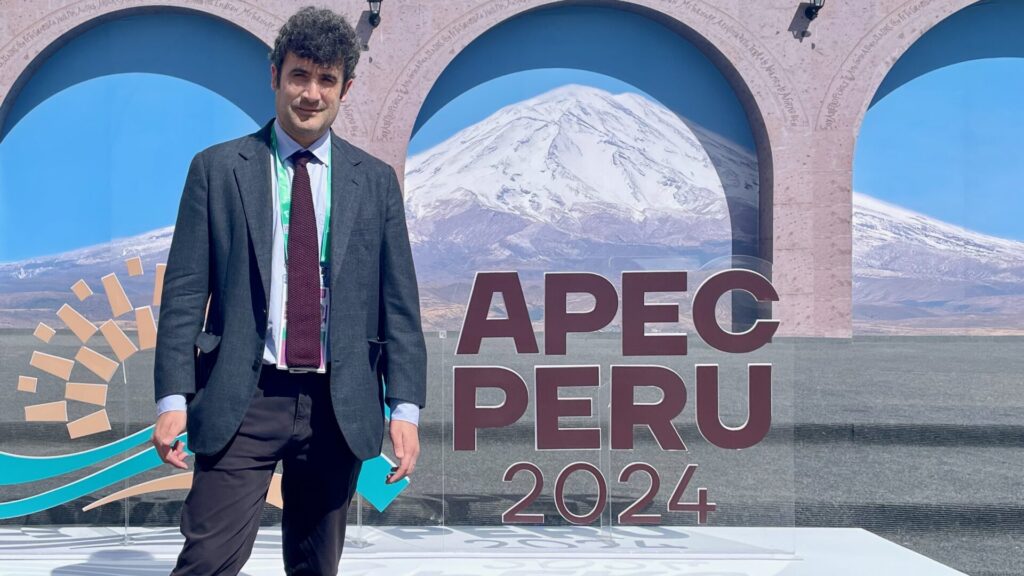Universidad de Chile showcased the APRU Virtual Student Exchange Program at the recent 49th plenary meeting of APEC’s Human Resources Development Working Group (HRDWG) in Arequipa, Peru.
During the 49th plenary session themed “Building the bridge from the informal to the formal economy: promoting investment in inclusive and equitable human resources development in the Asia-Pacific region”, Prof. Andrés Dockendorff, a Professor of Political Science at Universidad de Chile’s Institute of International Studies, introduced joint research projects emphasizing inclusivity in education and the workforce. He further explained how the university uses its role in APRU to advocate for policies that assist underserved populations across the Pacific Rim. Dockendorff noted that this cooperation has benefitted 300 participants from Chile alone in the past four years. Universidad de Chile is one of the original members of APRU and the first and only institution of higher education representing Chile in the Association.
Dockendorff emphasized the significance of academic networks like APRU in offering students from vulnerable backgrounds the chance to connect with students from other countries, thereby overcoming physical distance and social barriers. In this regard, Prof. Dockendorff pointed out that students from rural remote communities in Australia, indigenous students in New Zealand, and Chilean students from distant locations all face similar obstacles when accessing quality education.
Equipping staff and academics with the necessary skills and knowledge to improve access and inclusion is crucial. “We regularly conduct workshops and seminars, often in collaboration with other APRU members, to train educators and administrative staff on best practices for inclusivity in education,” said Prof. Dockendorff.
“This comes after the pandemic transformed the approach to education and human resources training programs in Latin America, as long-term and structural problems of the region, such as poverty, were met with new opportunities associated with the rise of virtual exchanges.”

Prof. Dockendorf went on to share insights into a digital education campaign in Islands off the coast of Chile, as an example on how virtual education and exchanges can be conceived as a first step to prepare the ground for future physical exchanges. As it stands, the campaign serves as an example of Chile striving for equity in access to education and the significant impact that digital education can have in remote and hard-to-reach communities.
The APRU virtual student exchange program is a shining example of international education that promotes collaboration and cultural exchange among universities in the Pacific Rim. It is clear that initiatives like this are essential in shaping the future of education and preparing students for the globalized world.
The 49th HRDWG plenary meeting culminated in the 21 APEC member economies endorsing the “APEC HRDWG Arequipa Goals”, which aims to bolster cooperation among APEC member economies in advancing policies that empower people with disabilities for sustainable and inclusive growth. The goals seek to increase the percentage of qualified special education teachers in rural areas, as well as improve vocational training programs and the participation of people with disabilities in these programs by 2030.
The APRU Virtual Student Exchange Program is an initiative that enables students from member universities to engage in international learning experiences and research projects without having to leave their home country. It seeks to promote collaboration and mutual learning among students through the use of digital technology.

